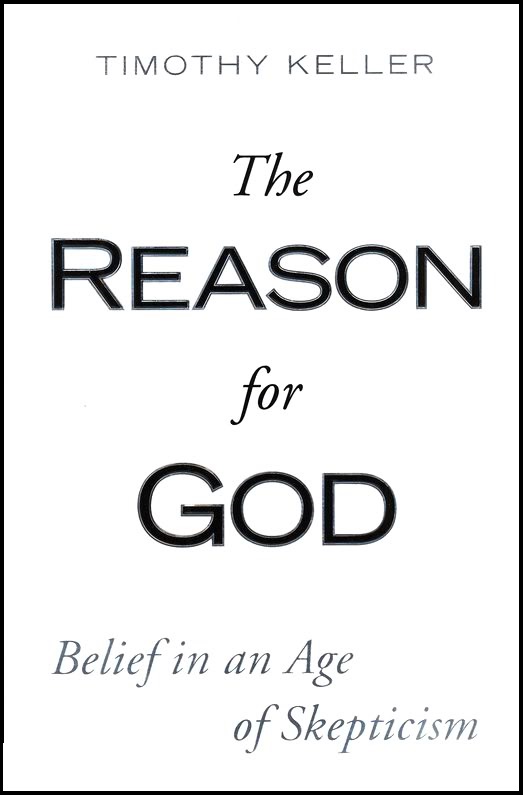Nick Pateras | The Reason for God
BOOK REVIEW
The Reason for God: Belief in an Age of Skepticism
Disbelievers’ fervor will soften after this deep dive into thoughtful Christian apologetics
I was gifted this book by the mother of one of my dearest friends, following an honest and blunt conversation about our contrasting religious beliefs. Though I remained vigilant in defending my position as an atheist, I conceded I was a product of a largely secular upbringing, and I was aware that this milieu would have inevitably played a part in shaping my belief system. I informed her that it was for this very reason that I’ve made a conscious effort to establish first principles rather than succumbing to a position of default: it’s why I attend church at least once a month, why I own several copies of the Bible and Qur’an, and why I have such admiration for William Lane Craig for being the only man of faith I’ve ever seen to comprehensively defeat Christopher Hitchens in debate. My friend’s mother must have interpreted this as an opportunity to further deepen my religious understanding, and I was both humbled and grateful when she presented me with Keller’s The Reason for God.
A well-known American theologian, Keller is the founding pastor of Redeemer Presbyterian Church, which claims to draw six thousand attendees to its weekly services. He has authored several books, though The Reason for God is arguably his most successful, having earned a temporary place on the New York Time’s Bestseller list shortly after its publication. Keller partitions the book into two halves, with the first addressing common criticisms of religion, such as incredulity that a God would allow for suffering, or the line that science has disproved much of Christianity. Having navigated these and other numerous arguments against religious belief, the book’s latter half then pivots to the contrapositive position, affirming the justification for a Christian mindset.
"Christians are the true revolutionaries who work for truth and justice, and we labor in expectation of a perfect world."
Though I wished I could pose questions to the author as I read, this book was a wholly worthwhile investment of time for a religiously-curious mind like my own. Keller exhibits a true intellectual thrust, laying out a logical flow that carefully expounds his position and continuously references great thinkers on both sides of the debate, from the eloquent C.S. Lewis to the percipient Thomas Nagel. On several occasions I was forced to pause and consider the steaming truths wafting from the text, perhaps exemplified best in the chapter on universal moral truth. As someone who does not subscribe to universal ethics, I personally operate by caveating that everything I label ‘good’ or ‘bad’ is solely a single person’s judgment and indicative of morality as a social construct rather than broader truth. This is of course a contradiction in my own thoughts, of which I’ve long been aware, but Keller underscored it emphatically, reiterating how only by deferring to some higher power can one insist on an all-purpose moral compass.
"The church is a hospital for sinners, not a museum for saints."
Despite several chapters admittedly tickling my brain, others invoked incredulity as I felt Keller was reverse-engineering Biblical references to suit his own belief system. For instance, in the chapter entitled “How could a good God allow suffering?”, Keller’s rebuttal was to posit that just because we can’t recognize the good that comes from what we think to be evil, doesn’t mean God isn’t good and any evil isn’t all part of a grander plan. This is a fine form of casuistry but does not survive a slash of Occam’s reliable razor. On another occasion, Keller proclaims some Biblical passages, like Genesis 1, to be poetic and ergo metaphorical, in contrast to those which are a literal representation of historical events, such as Genesis 2. It was hard not to recognize the sizeable luxury Keller had granted himself with this blatant cherry-picking, a thought which also arose as he closed a section on allowing God to correct one’s thinking with the myopic, “In any truly personal relationship, the other person has to be able to contradict you.” Reminding readers that only God enjoys the privilege of contradicting would surely have been superfluous.
Apart from the customary messages that we are sinful and require rescue (and have no say in the matter either way) and some repetitive sections in the latter pages, this book represents valuable reading for anyone with a moderate interest in religious thinking. Keller adopts a respectful yet firm tone throughout, for which I applaud him given the subject’s sensitivities. My position has not changed but I certainly feel more knowledgeable and the practice of exposure to other viewpoints once more proves to open the mind in a unique way. My exploration of religion continues.
-NP, Dec. 2016
